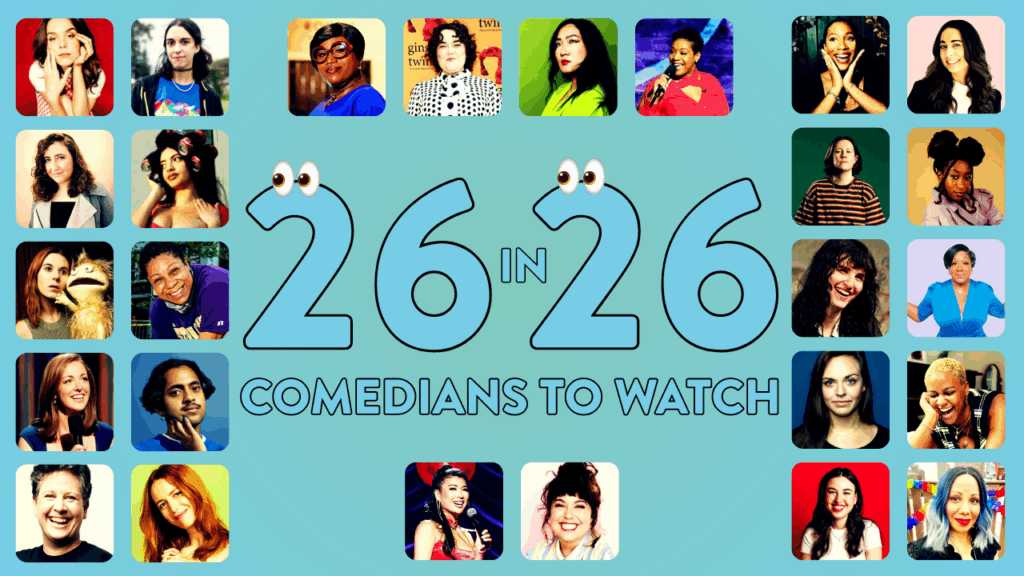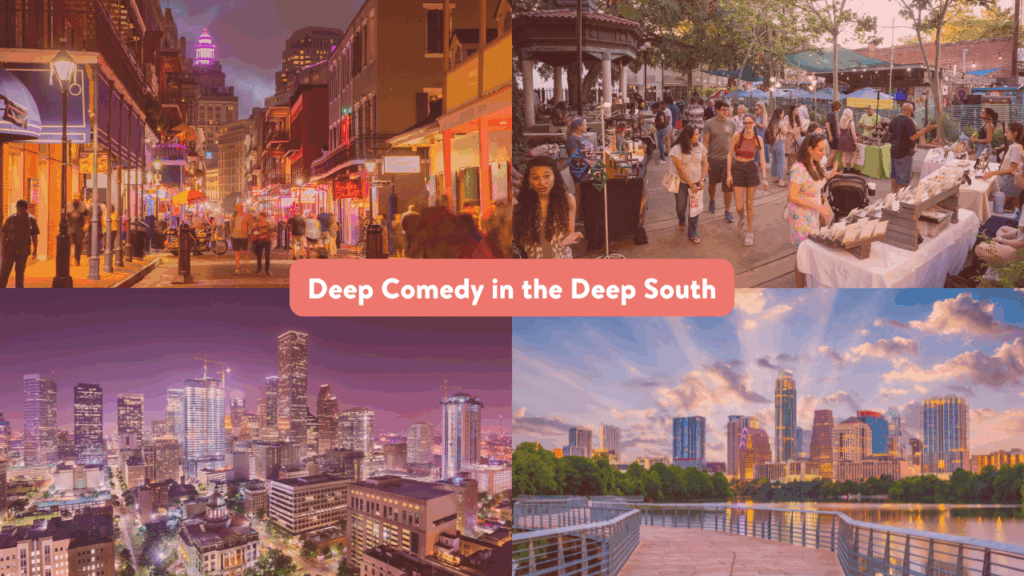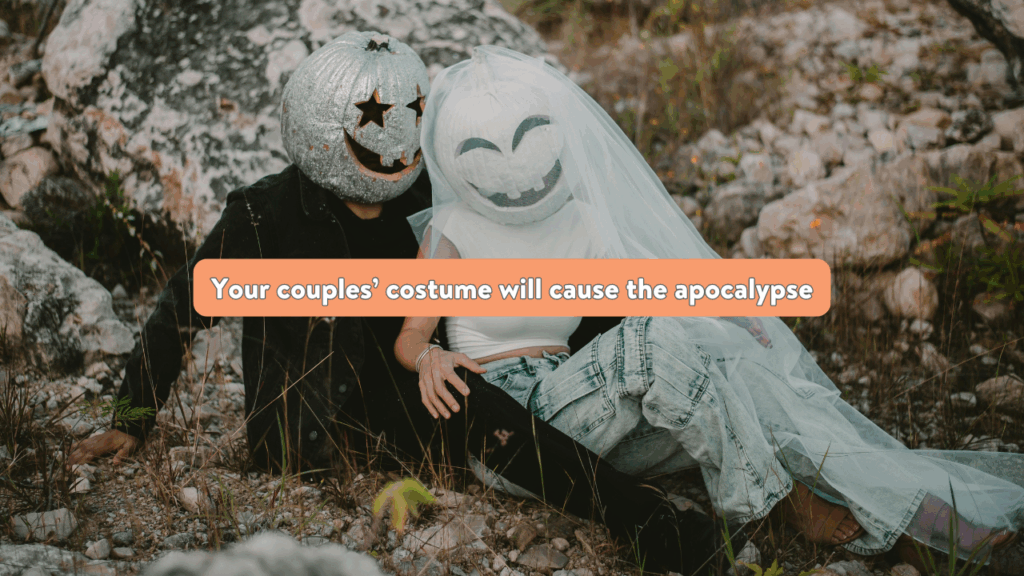6 things everyone should know about comedy and depression
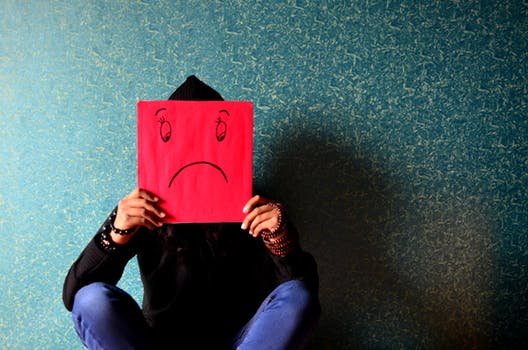
Here’s a common exchange.
Stranger: So, you’re a comedian?
Me: Yes.
Stranger: Are you depressed?
Me: I haven’t tried to kill myself today!
It’s a pretty rude question, but comedians hear it a lot. And I guess—if only in terms of math—it’s legit. According to the National Institutes of Mental Health, an estimated 16.1 million U.S. citizens 18 or up had at least one major depressive episode in the year of 2015. That’s almost 7 percent of all adults. Or, put another way, if I had 100 M&M’s, but 6.7 of them were secretly Skittles. I’d bite into one of the Skittles like, “What the hell, bro, I was told this was chocolate and you know I hate surprises because they remind me that life is fragile and fleeting and I could die at any moment?”
My point: many people suffer from depression. And many people are comedians. Does that mean that many comedians are depressed? In pop culture, yes. What about real life? Which is the chicken and which is the egg? Are comedians tragic, broken people OR are tragic and broken just what’s funny?
Related: for my own part, I’ve noticed that doing comedy makes me feel both empowered and insecure. So, as a comedian/reader of Psychology Today who spends her lunch breaks wrongly diagnosing those around her, I thought it high time we get to the bottom of the sad clown stereotype—and also to ASK FOR A FRIEND about some ways of preserving your sanity while working as a comedian.
I talked to Matt Aibel, LCSW, a psychoanalytic psychotherapist (and a self-described “recovered performer”) based in New York City and Long Island who specializes in working with artists. Here’s what he had to say about comedy and mental health:
You may have to be a little crazy to be a comic, but that’s okay.
If you feel you didn’t get enough attention/appreciation/applause when you were younger, well, join the club. It’s a pretty big club, too. “We all need to feel recognized and appreciated,” says Aibel. “There are many ways to satisfy that need. Performing is a powerful pull.”
But comedy? Comedy is really hard. Bothering to do it instead of something easy means that at some level you need to do it—to “finally feel alive, to feel deeply recognized in a longed-for way,” says Aibel—is really strong. “Why else would someone subject his or herself?” he asks.
The problem is, the laughs may not be enough. “Performing is rarely enough to truly undo an underlying sense of inferiority or emptiness. That’s why the high of it is like a drug. When it wears off, you need another fix,” says Aibel. In other words, success is great, but it doesn’t necessarily fill the VOID OF SADNESS. (See: lots of successful comics and performers who self-destruct.)
BUT! Even if THE BIG EMPTY is part of what drives you, it may not be all that drives you. And that rawness and vulnerability, handled authentically, is comedy GOLD—partly because so many other people can relate. Always key, Aibel says: “Make sure you’ve got other things that help you feel good about yourself and about life, and loved ones whose presence can help you keep in mind that you have value outside of your performing success.”
Punchlines can help you process.
You know how they say “comedy = tragedy + time”? Here’s Aibel’s take on that: “A comedian who can slow down and stay present with challenging feelings benefits not only emotionally, but also in performance, by being able to hold the room in stillness or silence, as opposed to just barrelling along. That can make for a richer, more resonant act.” Laurie Kilmartin (45 Jokes About My Dead Dad) and Tig Notaro (One Mississippi) are two (of quite a few) masters at this—at using finely drawn humor not to deflect or make light of tragedy, but to authentically process and share it.
That’s an advanced move, we know. “Comedians may have a harder time slowing down and staying with uncomfortable feelings,” says Aibel. “Their impulse can be to discharge the energy of important feelings by converting it to a punchline or speeding along.” It can be funny, but it can also leave you stuck. If you want to experiment, try your darker, most personal stuff on friendly crowds (or just friends) first. Let them help you get comfortable and give it time to gel.
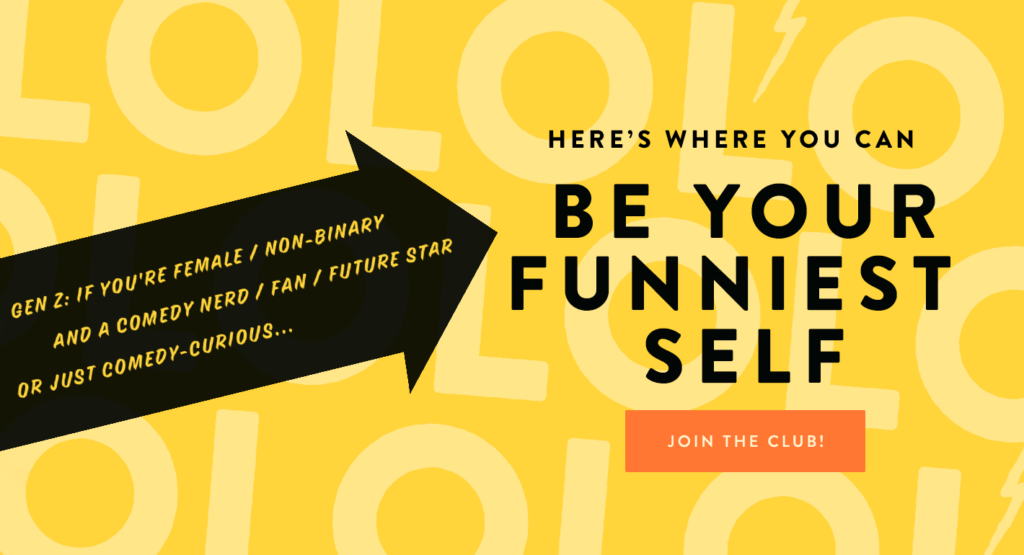
Learning to be a good comic can be like learning to be a good human.
“It’s powerfully gratifying to move others to think and feel—and feel less alone—through storytelling and performance. Not just for the ego but for the heart,” says Aibel. And learning how to connect with people, even from the stage, is possibly the most mentally healthy and valuable life skill there is, other than fixing phones after they’ve fallen into the toilet (plz help me.)
3 tips for staying funny and sane
Set goals you can control.
Aibel calls these “process goals”: Set goals around things you can actually do, like performing x number of nights a week, not things you can’t control—like getting a callback.
Get a hobby!
When you’re a comic, your job is to be critical. How to stay positive, especially about yourself? Make sure you do stuff outside comedy that makes you feel in control and positive, says Aibel.
Find support—yes, even on a comedy “salary.”
Aibel’s reccos:
Read books.
- On the creative process: The Artist’s Way (Julia Cameron), The Creative Habit (Twyla Tharp)
- Spirituality books and practices “offer strength, perspective, consolation, and tools for self-care.”
- Layperson therapy books: The Drama of the Gifted Child (Alice Miller), The Art of Loving (Erich Fromm)
- Great lit: The Unbearable Lightness of Being (Milan Kundera) “offers perspective on staying intact when you feel deprived of your identity.”
Find a mentor: perhaps an older comedian whose approach and spirit you admire (but beware of “gurus.”)
Be around PEOPLE: Supportive coaches, teachers, colleagues, and friends can make a big difference.
Try not to let your body go to sh*t. Or, as Aibel puts it: “Physical fitness, exercise, and healthy habits around sleep, food, alcohol and drugs are beneficial.”
Quality low-cost therapy. New York and other cities offer solid low-fee/sliding-scale clinics through psychoanalytic institutes, and private therapists and organizations like The Actors Fund offer workshops and support groups.
BLAIR DAWSON (intern, workshops) is a standup comic and improvisor who produces and co-hosts a monthly storytelling and stand-up show sponsored by Babeland called “U Up?” @UrGirlBlair

